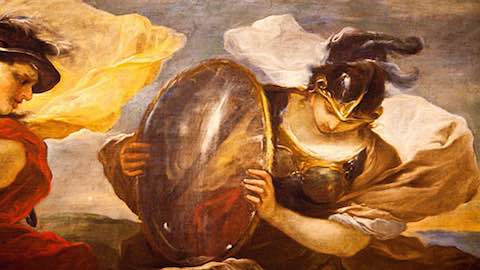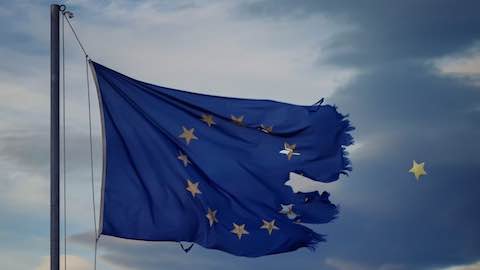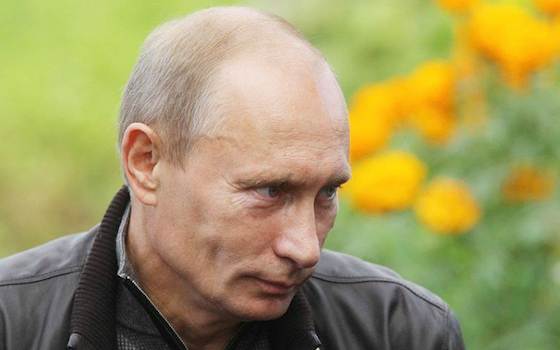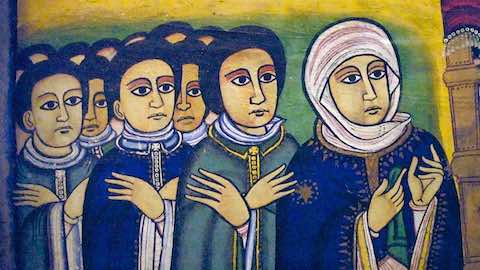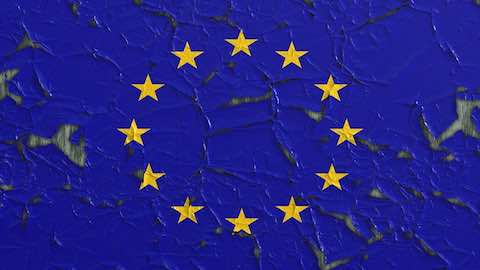- MENU
- HOME
- SEARCH
- WORLD
- MAIN
- AFRICA
- ASIA
- BALKANS
- EUROPE
- LATIN AMERICA
- MIDDLE EAST
- United Kingdom
- United States
- Argentina
- Australia
- Austria
- Benelux
- Brazil
- Canada
- China
- France
- Germany
- Greece
- Hungary
- India
- Indonesia
- Ireland
- Israel
- Italy
- Japan
- Korea
- Mexico
- New Zealand
- Pakistan
- Philippines
- Poland
- Russia
- South Africa
- Spain
- Taiwan
- Turkey
- USA
- BUSINESS
- WEALTH
- STOCKS
- TECH
- HEALTH
- LIFESTYLE
- ENTERTAINMENT
- SPORTS
- RSS
- iHaveNet.com: Eastern Europe
Countries
Argentina | Australia | Austria | Benelux | Brazil | Canada | China | France | Germany | Greece | Hungary | India | Indonesia | Ireland | Israel | Italy | Japan | Korea | Mexico | New Zealand | Pakistan | Philippines | Poland | Russia | South Africa | Spain | Taiwan | Turkey | United Kingdom | United States
- The Birthplace of Trumpism
- Satisfaction Levels Around Europe
- Putin's Syrian Quagmire
- European Hospital Bed Capacity
- Islamophobia in Eastern Europe
- The Kremlin's Kool-Aid
- Authoritarian Symps
- A New Crackdown in Belarus
- Church & State in Poland
- Russia's Defense Industry
- Migration & Security in Europe
- Can Ukraine Gnaw Its Way Out?
-
Past Horrors Haunt a Polish Town
- Whither Ukraine's Revolution?
- Poland: Land of Junk Contracts
- Polish Activists on the Cutting Edge
- Russia's Serial Treaty Violations
- How Putin Can Defeat NATO With Nukes
- The Bildt-Sikorski Effect
- Belarus: Forced Labor for 'Social Parasites'
- Ukraine and Russia: Perspectives
- The Global Militarisation Index
- Sanctions & Russia
- Poland's Uncivil Society
- Solidarity's Offices: Where Time Has Stopped
- Putin & the Irony of Helsinki
- Europe's Geopolitics
- Kiev Bloodbath Remembered
- Reconciling Europe's Fault Lines
- Europe Going the Way of Yugoslavia
-
Poland's Geographic Challenge
- The Non-Death of Polish Neoliberalism
- NATO & Russia: Roulette or Reset?
- Before Solidarity
- The War to End All Wars
- The Russian Intelligence Mind-Set
- Public and Private in Poland
- Where Support For Autocracy Strongest
- What's Left of Europe
- Perspectives for NATO-Russia Relations
- Putin Ensuring Authoritarian Governance
- U.S. Too Casual About Russia
- Russia's Stolen Future
- Europe & Islam: The Way Forward
- Intersection of 3 Crises
- Europe Gets up off the Mat
- Calls for Appeasement in Ukraine
- Human Rights in Poland
- Ukraine: Red Meat for NATO
- The Cold War Never Ended
- What Ukraine Really Needs
- Putin's Fascist Lies
- A Real Risk of War
- Next Step in Ukraine Crisis is Unknown
-
Coverage, analysis, photo and video coverage of the 2014 FIFA World Cup from Brazil
-
Today's fight for Ukraine began with the Maidan uprising in November, but the struggle has its roots in an earlier period of political ferment -- 1991, when the Soviet Union collapsed and Ukraine became an independent state
-
President Obama is right. 'Mr. Putin's decisions aren't just bad for Ukraine. Over the long term, they're going to be bad for Russia.' But here's the thing: Putin disagrees. And on the matter of Ukraine, Putin is immune to persuasion
-
After the tenuous deal struck aimed at de-escalating the Ukrainian crisis, Secretary of State John Kerry cautiously called it 'a good day's work.' Whether it will turn out to be more than that depends of course on Russia's willingness to follow through
-
In an apparent effort to fight bribery with even more overt state-sanctioned bribery, the battle for the hearts and minds of Ukraine has devolved into two suitors -- the West and Russia -- flashing their respective bank account statements. How obscene
-
Will everyone please stop talking about a new Cold War? However badly things work out between Russia and the West, a new Cold War isn't in the cards because Russia today isn't the Soviet Union. Sure, there are similarities, but ...
-
In American domestic politics, messing with Social Security is known as "the third rail," referring to the power source for trains that is fatal to the touch. In foreign policy discussions, invoking the name of Adolf Hitler promises the same lethal result
-
Here again in the Ukrainian affair we see the Manichean habits of mind of the Cold War, still the most powerful precedent in the last 50 years of American and Western political history and policy studies
-
After a quarter of a century of relative calm since the collapse of the Soviet Union, the Russians are coming again. The regime of President Vladimir Putin has swiftly pivoted to much more serious gamesmanship in neighboring Ukraine
-
We must consider the future of Eurasia after the fall of the Soviet Union. The successor state to the Soviet Union, Russia, is emerging from this period with renewed self-confidence. Yet Russia is also in an untenable geopolitical position
-
My beloved golden-domed Kiev with its cobbled streets and laid-back people will never be the same. We used to enjoy a slow, Mediterranean-style routine of cafes and gossip. Muscovites treated our city like a resort. These days the city centre is a war zone
-
Things are moving far too fast in Kiev, Moscow and Crimea to write about events there. But the past isn't going anywhere. Though you wouldn't know that from the way the Obama administration talks about it
-
News from Ukraine is moving so fast that if you don't look closely, you'll miss the untold story: a revolution for and by Ukrainian women
-
While most of the Western media describes the crisis in the Ukraine as a confrontation between authoritarianism and democracy, many of the shock troops who have manned barricades in Kiev and Lviv these past months have little interest in democracy
-
Ceding to protestors' demands, Ukrainian parliament members voted to impeach President Viktor Yanukovych and hold early elections. Various media outlets responded by breathlessly declaring the situation a 'revolution.' Except that it isn't at this point
-
What did Washington expect to gain from a coup d'etat in Ukraine? It gained little from the 'Orange Revolution', that first put Viktor Yuschenko and Yulia Tymoshenko into power in independent Ukraine. Their power produced rivalry and corruption
-
Ukrainians are in uproar about how to force their distressed government to accept the majority will in Ukraine to join Western Europe, via association with the European Union. Their effort has produced rebellion and spilled into violence
-
Pussy Riot are now global celebrities. Since the amnesty of Nadya Tolokonnikova and Maria Alyokhina in December, their lives have been repackaged into simple cinematic narratives of heroic defiance to Putin's authoritarianism
-
The Cathedral of St. Michael the Archangel sits on a hill overlooking the Black Sea. The Russian Orthodox house of worship is the oldest in the city, commissioned by a Russian noble in the late 1800s
-
Vladimir Putin is the focus of attention in Russian politics. He is the policy setter and the final decision-maker. However, for a clearer insight into how Russian politics works this focus on President Putin is too narrow
-
After years of protracted negotiations, Ukraine is almost ready to sign an Association Agreement with the European Union. Robert Cutler describes how the agreement might impact the fate of Ukraine's Russia-to-Europe gas transit system
-
Among many other demographic problems, Russia is confronting a rapidly ageing population. Since the break-up of the Soviet Union in 1991, Russia has fallen from having the 6th largest population in the world to 9th. By 2050, it will fall to 15th place
-
Poland is a thriving, vibrant democracy that, like Germany, managed to escape most of the devastating economic repercussions of the European debt crisis. But it's still struggling, not so successfully, to cope with its dark past
-
When the proposal was initially made for a common European currency, it seemed to be a good idea. Although inexpert in economics, it struck me as an effect of a false analogy with the United States that was common in Europe at that time
-
Clearly, Russian leaders are keen to catch up with the world's leading manufacturers. What cannot be produced fast enough can be bought. As one observer put it, 'the Russian drone programme remains pragmatic'
-
A borderland is a region where history is constant: Everything is in flux. Turkey, Romania, Moldova, Ukraine and Poland occupy the borderland between Islam, Catholicism and Orthodox Christianity
-
It would have taken a brave analyst to predict that BP would end the year having negotiated its exit from TNK-BP, the highly profitable but troubled Russian venture created in 2003
-
Extremist attacks in Poland and elsewhere may follow Europe's worsening political and economic situation
-
The parliament voted to suspend President Traian Basescu amid fierce political infighting that sparked serious international concern
-
Caught between ethnic identities and ethics, reporters in Southeast Europe are commonly intimidated into self-censorship
-
Despite the gains of the Orange Revolution, the spectre of tyranny is once again hanging over Ukraine
-
Russia's energy supplies ensure that Moscow maintains a geopolitical foothold in the European part of the former Soviet space
-
While Russia remains centrally important to most of the post-Soviet space, Moscow's direct influence across this region is far from assured
-
Russia's burgeoning oil and natural gas exports are underwriting Russian efforts to regain status as a world superpower
-
The way the world works now, and the way Russia has inserted itself into absolutely everything, it's impossible to avoid dealing with them on virtually any international issue
-
As Belarus grows more isolated from Europe and the West, it becomes more likely to integrate further with Russia
-
Vladimir Putin has built his political reputation on a perceived ability to enforce order and revive the country's economy. But economic data suggests that Russia has moved backwards under Putin
-
With Russia's political clan system in shambles, no strong Kremlin figure is managing Chechnya
-
Russians are coming out onto the streets to transform their country once again
-
The anti-ballistic missile (ABM) system under construction by the US and NATO in the Black Sea Region poses no threat to US-Russian nuclear strategic parity. On the contrary, it holds cooperative potential for the two leading nuclear powers. It could also stabilize the broader Eurasian security situation in the light of Iran's policy of nuclear blackmail
-
The stage is set for the 2012 Euro Cup following Friday's draw that saw host Poland and Ukraine getting the top draws while Spain placed in a tougher group. Poland was drawn in Group A along with Greece, Russia, and Czech Republic
-
What made Europe a compelling political, economic, and social alternative wedged between Anglo-American free marketeers and Soviet nomenklatura is rapidly becoming a thing of the past
-
Slovakia rejected the proposed expansion of the European Financial Stability Facility. The measure was defeated by 21 votes after eight hours of debate by Slovakian parliament members
-
Civic Platform has become the first Polish political party and Prime Minister Donald Tusk has become the country's first leader to win two consecutive terms since the fall of communism in 1989
-
NATO, Russia and Missile Defense mark a triangle which contains political promises but also the danger of failure and friction
-
It is important to understand that the crisis is not fundamentally about Greece. After all, Greece represents only 2.5 percent of the eurozone's GDP, and the bloc's fiscal numbers are not that bad when looked at in the aggregate. The real crisis is the more fundamental question of how the European continent is to be ruled in the 21st century
-
Russia has entered election season, with parliamentary elections in December and presidential elections in March 2012. Typically, this is not an issue of concern, as most Russian elections have been designed to usher a chosen candidate and political party into office since 2000. Interesting shifts are under way this election season, however
-
If Syrian President Bashar al-Assad wants a glimpse of his nation's future, should he continue savagely suppressing his people's democratic aspirations, he need only look north to Belarus, another venal dictatorship whose security forces brutalized thousands of citizens protesting a fraudulent election in December
-
Muliculturalism has failed. So said Chancellor Angela Merkel in a speech in Potsdam last October. David Cameron and Nicolas Sarkozy both echoed her opinion early this year. But it is not easy to know just what they meant. The term is open to so many interpretations and used in so many different ways. Is it an ideology, a set of policies, or a social reality?
-
The Visegrad Group consists of four countries â€" Poland, Slovakia, the Czech Republic and Hungary. The group was reconstituted in 1991 in post-Cold War Europe. The goal was to create a regional framework after the fall of Communism. The Visegrad Group took an interesting when it announced the formation of a 'battle group' under the command of Poland
-
If you're looking for Places in Europe you can visit without breaking the bank, you'll find the lowest hotel prices in the East and in Iberia. But you can find reasonable prices in dozens of other European cities
-
BP and the Russian state controlled company Rosneft have announced a strategic global alliance that involves the first major equity-linked partnership between a national and international oil company. While the potential rewards are high, so are the risks. Is this really an 'alliance fit for the 21st Century'?
-
The formal subject was 'Europe Looks East,' and while that seemed to mean Atlantic and Central Europe looking at Russia and beyond, more important was Western Europe looking at relations between Europe and Russia, plus Ukraine, Belarus and Moldova. The second perplexing subject was the Balkans, still the location of Europe's most persistent (and contagious) troubles
-
In recent years, a new threat has emerged: the mafia state. Across the globe, criminals have penetrated governments to an unprecedented degree
-
Both elections were both exercises in political theatre, in which the middle classes were absent, the grateful poor voted en masse, the opposition protested, and fraud was alleged
-
In 2014, Russia will host the Winter Olympic Games in the Black Sea resort town of Sochi. Potentially an opportunity to project a strong image of the country and develop international partnerships, the Games also run the risk of drawing attention to a number of issues Russia might prefer stayed hidden
-
Milo Djukanovic may have stepped down as the Prime Minister of Montenegro, but the conclusion of a protracted struggle over succession will ensure that he remains a key figure in Montenegrin politics.
-
On December 12, 2010, Kosovo held its first general election since declaring independence from Serbia in 2008. The elections were a test of Kosovo's democratic institutions - unfortunately, they are unlikely to be remembered as a resounding success.
-
On December 19, 2010, Belarussians went to the polls amid hopes in Europe that the presidential vote would show evidence of a freer and more transparent process than in previous elections.
-
Russia and the West are both warning of the risk of escalation to a civil war in Ukraine between pro-Russian and pro-Western factions. Except 'Cold War Reloaded' is different this time -- and the differences are worth keeping in mind as events unfold
-
An international disorder unmatched since the interwar 1930s has been created by the drama of Ukraine and the Russians. At least no ideological dictatorships are on the march, only confusion, incompetence, and intellectual and moral disorder
-
During the Cold War, the Western allies kept relative peace by committing to intervene militarily against overt violations of national borders. In the current Ukraine crisis, Obama's acknowledgment that there is no "military solution" no doubt is an affront to hard-liners
-
Vladimir Putin's land grab of Crimea, with more threatened to come, has Republican neoconservatives eagerly lining up to denounce President Obama as a deplorably weak leader who settled for throwing snowballs at Putin rather than military muscle
-
After Vladimir Putin's speech in the Kremlin justifying and welcoming Russian annexation of Crimea, the western press now asks what next will Putin do? How far will he go? That question was answered by Vladimir Putin himself in his address
-
In the aftermath of Crimea, attention is focused on the efficacy of the West's response in the form of economic and travel sanctions. More important for the longer term is what Moscow will learn from the Western response
-
Hopefully, leaders from both sides of this East-West conflict will calm down and start thinking of their own long-term interests -- which might be more similar to the other side's long-term interests than the leaders on both sides realize
-
Obama's response to Russian President Vladimir Putin's power move in Crimea can hardly be compared to Neville Chamberlain's fateful surrender to Adolf Hitler's blatant theft of the Sudetenland from Czechoslovakia in 1938
-
A prison cell in Siberia? Or exile in the West? Russian dissidents faced this choice under the czars, and under the rulers of the Soviet Union. Now this choice has returned to Russia under President Putin
-
The so-called 'reset' aimed at improving ties between the United States and Russia did bring concrete results. But now, analysts say relations between the two countries are deteriorating again
-
Polish national strategy pivots around a single, existential issue: how to preserve its national identity and independence. Poland's existence is heavily susceptible to the moves of major Eurasian powers
-
While Europe as a whole is suffering from the economic crisis, the Muslim population has been hit particularly hard. This, in addition to the frequent discrimination against Muslims, leaves many Muslims feeling alienated, disenfranchised and resentful
-
Money that the European Commission provides to Bulgaria to fund Roma inclusion projects is diverted elsewhere
-
Risk Monitor's Stefan Popov is trying to change the image of Bulgaria as the Wild East frontier of the European Union
-
The recent dramatic attack on Bulgarian politician Ahmed Dogan who champions immigrant rights for Muslims and Turks wasn't a clear-cut case of ultra-right nationalism
-
From an economic perspective, Russia has been unable to avoid the effects of the global financial crisis. From a geopolitical perspective, the position is rather different. Since the crisis began, Russia has taken a number of steps to strengthen its positions in Europe
-
Czechoslovakia, though it no longer exists, remains a symbol of courageous resistance and sensible conflict resolution. It's been 20 years since Czechoslovakia split apart. The divorce took place without violence and without a referendum
-
As usual, the Serbian parliament declared that it would never recognize the independence of the breakaway region. As the United States does with China and Taiwan, Serbia practices strategic ambiguity with Kosovo
-
Russian Prime Minister Vladimir Putin and President Dmitry Medvedev's decision to swap jobs may put an end to the diarchy in Russia but is unlikely to lead to any tectonic policy shifts. Instead, it will further cement the system of ‘managed democracy', which in time will become so inflexible that it may fail to cope with a protracted crisis
-
Speaking alongside leaders of the Balkan states at the New York Balkan Forum, Turkish Prime Minister Recep Tayyip Erdogan stressed the cultural and historical ties between Turkey and the Balkans, while calling on the region to overcome its troubled history to co-operate and integrate to form a common future
-
Russian officials think the Collective Security Treaty Organization, a bloc of friendly ex-Soviet republics, can develop into a security grouping on par with NATO. But recent CSTO military exercises show that Moscow lacks a clear vision for how to utilize the alliance
-
Whereas Turkey's foreign policy mantra used to be 'no problems with the neighbors,' Turkey now seems to want to become the chief bully in the eastern Mediterranean, escalating tensions between the NATO member and Israel, a key US ally
-
The leaders of Serbia, Croatia and Bosnia and Herzegovina backed each other's Euro-Atlantic integration
-
The trilateral summit between French President Nicolas Sarkozy, German Chancellor Angela Merkel and Russian President Dmitry Medvedev made some gains in drawing Russia closer to NATO. However, many Russians, including Prime Minister Vladimir Putin, are skeptical of the West's intentions and many new NATO members from the former Soviet bloc are uncomfortable about closer ties with Russia
-
In February 2010, Viktor Yanukovych made a remarkable political comeback. In the 2004 Ukrainian presidential election Yanukovych was accused of fraud and ousted by the Orange Revolution, which was led by Viktor Yushchenko and Yulia Tymoshenko. Just over five years later, surrounded by his party's blue-and-white banners, Yanukovych became president
-
Putin's return to the presidency was not unexpected. But it comes as an anti-incumbent trend is developing in Europe. In response to these changes, Putin will have to adjust Russia's approach in Europe
-
Now that Vladimir Putin is Russia's president once again, the result of still another fraudulent election, we should expect ever more hostile relations with Moscow
-
For Russia, the recreation of a union is a strategic geopolitical necessity
-
The contest between Russia and Romania for influence in Moldova will focus on economics and security, given Moldova's politics
-
An offer to build natural gas storage facilities may help Russia gain leverage in Turkey
-
So Russian Prime Minister Vladimir Putin has just been re-presidented for at least another six years
-
Vladimir Putin is likely to be returned to the Kremlin by the presidential election. The West will have to live with this result. But what sort of Russia will the world be dealing with?
-
If there's one thing Europe doesn't need, it's more drag on economic growth. Yet that's just what it could be getting, with a fresh dose of snow and frigid weather
-
It has been two decades since the collapse of the Soviet Union, but for those who witnessed the drama of 1991, memories remain vivid
-
One sign of the how highly Lawrence Sheets is esteemed as an analyst of Central Asia and the Caucasus was the large turnout of his fellow journalists for his presentation of his new book, 8 Pieces of Empire: A 20-Year Journey Through the Soviet Collapse
-
Why is Medvedev bothering to symbolically make this distinction in denouncing the federal bureaucracy? The answer to this question is highly instructive to those of us in the Western world, particularly as we implode economically under the weight of public-sector costs, among other things
-
Reading through these dispatches last year, I was struck by the slightly desperate but nevertheless creative way American analysts tried to make sense of impenetrable Kremlin politics
-
Greece may be drowning in debt and awash in protests stemming from unpopular austerity measures, but that has not deterred thousands of Albanians from trying to claim Greek heritage and formally change their nationality
-
Poland has a limited hand to play as tensions between Russia and NATO increase
-
Several European Union countries said they would join Germany in boycotting the Euro 2012 football tournament unless Ukraine releases former prime minister Yulia Tymoshenko from jail
-
Nearly four hours south of Prague, this fairy-tale town of 15,000 is buried in the hills of the southern Czech Republic
-
Having secured a new presidential term, Putin is trying to show the world that he still has control of Russia
-
Vladimir Putin's reaction to Moscow protesters perfectly illustrates how he masterfully leverages classic subversion strategies to undermine the opposition and even ridicule the concept of democracy
-
After a decade in the doldrums, during which the Kremlin co-opted or marginalised all competition, Russia's political scene has come alive
-
Perhaps of all the painful developments in Russian society since the Soviet collapse, the most surprising -- and dismaying -- is the country's demographic decline. Over the past two decades, Russia has been caught in the grip of a devastating and highly anomalous peacetime population crisis
-
Ukraine, no stranger to crisis, is again in turmoil. President Viktor Yanukovych has failed to deliver on any of his campaign promises -- economic reform, increased prosperity, and an end to corruption -- and instead has rolled back democracy and the rule of law, deepening political, regional, and linguistic divisions in the country
-
The adoption of European standards, economic projects and genuine regional co-operation are the focus of the proposed strategy
-
The expectations of the last ten years that the states surrounding the Black Sea would follow the example of the Balkan region and shape themselves into a security community have not been realized. Perceptions of stagnation have replaced the hopes of a working and stable geo-strategic framework, based on a balance of cooperation and conflicts
-
Russia's international behavior during the last decade has puzzled many U.S. observers. As seen from Washington, the greatest challenges of the moment -- terrorism, nuclear proliferation, climate change -- are global ones that threaten all states. The United States has been trying to organize multilateral responses. Yet the Kremlin has proved singularly unhelpful
-
Belarus is a land between, now neither part of Russia nor a real European nation. Its president, intent on rallying the voters in this month's election, has cast Moscow as a threat to its very survival. The reality, as he is re-elected, is likely to be another balancing act between Russia and the west.
-
The last year has seen considerable change in the U.S.-Russian relationship -- or at least the desire and promise for change. But the prospects for Russian relations and Russia's foreign policy cannot be discussed in isolation from wider questions: In what direction is Russia moving? What will Russia be like ten or 20 years from now?
-
Around the world religion is on the rise. It is growing in countries with a wide variety of religious traditions and levels of economic development, suggesting that neither poverty nor social exclusion is solely responsible. The religious resurgence is not simply defined by the growth of fundamentalism but is occurring through a variety of renewed rituals and practices, both public and private
© iHaveNet.com
HOME | WORLD | USA | BUSINESS | WEALTH | STOCKS | TECH | HEALTH | LIFESTYLE | ENTERTAINMENT | SPORTS
Current Events in Eastern Europe
Eastern European News & Eastern European Current Events. Current Events from Eastern Europe
Your Single Source to Current Events Around Eastern Europe
Your Single Source to Current Events Around Eastern Europe
RSS Feeds | Shopping | Email Alerts | Site Map | Privacy
